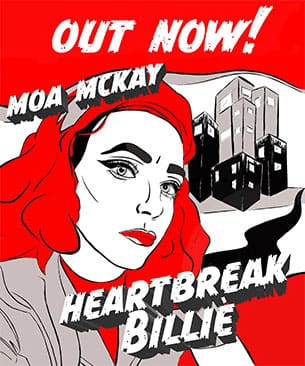
The film Hasret (the Turkish word for “yearning”) is a new feature-length documentary about Istanbul with fictional elements directed by Berlin-based British independent filmmaker and former Istanbul resident Ben Hopkins. Hasret is also a male Turkish name and hearkens back to a 1930s Turkish tango song that is featured in one of the film’s scenes.
İsa Çelik, a respected Turkish photographer featured in the film who plays Istanbul actor, historian and resident eccentric Faruk Korkmaz in the film’s only acting role, calls Istanbul an “infinite subject” in the film. Given the plethora of facets to a gigantic, history-laden city that could not all possibly be covered within the span of a film, Hopkins had to select the most intriguing aspects he saw around him, and ended up making a portrait of the city that comes off as an elusive and ethereal thumbnail sketch with a personal touch.
The film is a well-paced and brief 82 minutes that slip stealthily by, summoning an urge for repeat viewings. It is a quilt of variegated subjects such as the city’s unofficial rubbish collectors, its cats, minorities, gentrification, street protests and even a sense of the city’s cloaked spirit world.
Paradoxically enough, while the film is ostensibly an objective chronicle, it contains fictional sketches and in so doing, strives for a higher truth than the ultimately not-completely-believable objectivity of a straight-laced documentary. Perhaps that is a key aspect of the film’s title – yearning for a kind of truth, rather than claiming an illusory objective truth.
It’s full of fiction. There are certain things that are absolutely true and people who are themselves. It goes from people who are exactly themselves and who they purport to be, right down to people who are playing versions of themselves, but there are no completely fictional scripted scenes, apart from telephone conversations.
The telephone calls include Hopkins himself talking on a mobile phone with a ghost. This sequence was not originally intended and was a last minute solution. The filmmakers invited a medium to do a séance in an allegedly haunted house, but he did not show up.
Hopkins holds that in order to make an urban portrait that is not just a litany of facts and is interesting and feels like the process of discovering a city, one has to reference its apparition in fiction and memory – its metaphysical qualities as well as its physical ones.
The film I made addresses those metaphysical qualities, and in so doing, is also an enquiry into the nature of documentary truth. It’s not just a film about Istanbul. It’s a film about documentary filmmaking. It’s propounding my theory that presenting something purely on the level of fact and an attempt at objective representation of truth is not as interesting as a poetic and creative approach to reality.”
If this is reminiscent of Werner Herzog’s aesthetic in his so-called documentaries, it is because Herzog was a considerable influence.
“Herzog is a great teacher of mine,” said Hopkins. “I love his films and especially his documentaries. My theory and what I’ve just expounded upon is my interpretation of a similar idea. He calls it the ecstatic truth. I don’t have a term for it, but I’ve learnt from him, and believe I’m carrying on his tradition in my own particular way.”
Hopkins, 46, was born in Hong Kong and grew up in North London. He studied German and Italian at Oxford and filmmaking at the Royal Academy of Art.
His life and career had several brushes with Germany before he relocated to Berlin from Istanbul in 2012. His first feature film, Simon Magus, premiered in competition at the Berlinale in 1999. He followed this up in 2000 with the apocalyptic comedy The Nine Lives of Tomas Katz, which had its world premiere at the Hof Film Festival in Bavaria. He began long-term cooperation with the Berlin-based distributor Piffl Medien the same year.
After the documentary Footprints (2003), on the impact of landmines in Afghanistan, Hopkins filmed 37 Uses for a Dead Sheep (2006), about the Pamir Kyrgyz, a Turkic ethnic group that relocated en masse from Afghanistan to eastern Turkey. The film won the Caligari Film Award in the Berlinale’s Forum section.
Hopkins returned to narrative film with The Market (2008), a drama also filmed in eastern Turkey about a man veering between entrepreneurship and inadvertent altruism.
His latest narrative film, which was also released to theatres in Germany, was Welcome to Karastan (2014), starring Matthew Macfadyen as a film director who visits an obscure film festival in a country in the Caucasus and is hired by the local dictator to film his people’s historical epic.
In addition to his work as a film director, Hopkins’ also a published author with his first novel, Gwupygrubynudnyland, set in a fanciful 1820’s Eastern Europe, and he is currently completing his second book.
Hopins’ first visit to Istanbul was in 2000, after the Bursa Film Festival. Later, Hopkins’ 37 Uses for a Dead Sheep was featured at the Istanbul Film Festival. Hopkins moved to Istanbul in 2008 and lived there for four years before relocating to Berlin.
While Hopkins was working on The Market, he met his wife Ceylan Ünal, who was a production assistant on the film. She grew up in eastern Turkey, but she had been living in Istanbul for eight years when he met her. She co-wrote the treatment for Hasret, and was instrumental in making the film well-rounded and culturally comprehensive.
Ceylan’s credit is mainly recognition of the fact that there was no way I could have come to this project without her. She introduced the city to me and explained its role in Turkish traditions of poetry and music. So the film has an authenticity and is not entirely from the point of view of an outsider. It’s a fairly authentic, relatively insider-ish view of the city. All of that is thanks to her, because without her, I’d just be some English guy knocking on doors and asking people to explain things.
Hasret is currently in cinemas in Germany and will screen in the UK on 18th January at the Home MCR cinema in Manchester and 19th January at the Curzon Bloomsbury in London, with Hopkins in attendance at both screenings. The film will also be released in Turkey in March and will show later in 2016 on the Arte channel in France and Germany.
Article by Kirill Galetski


